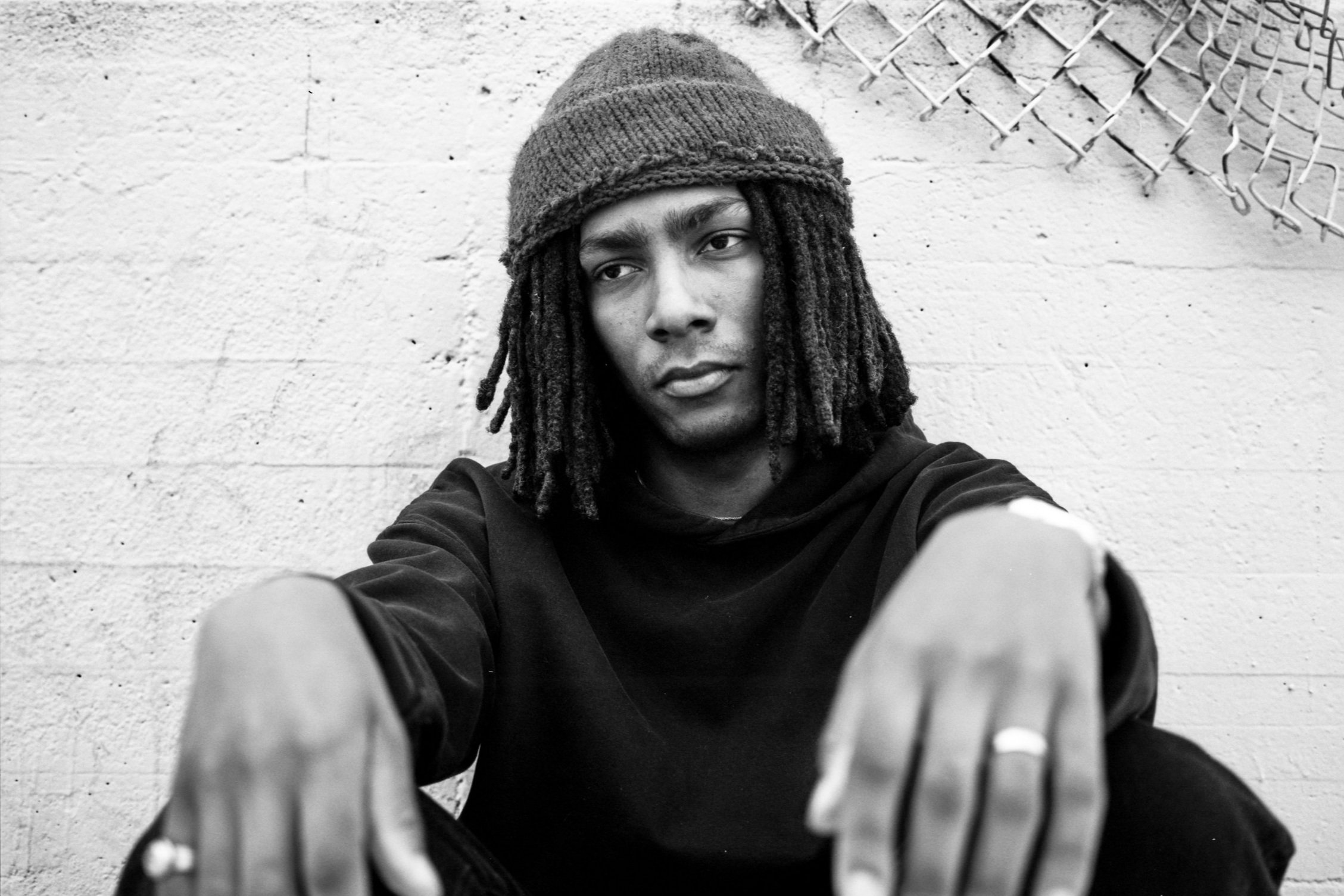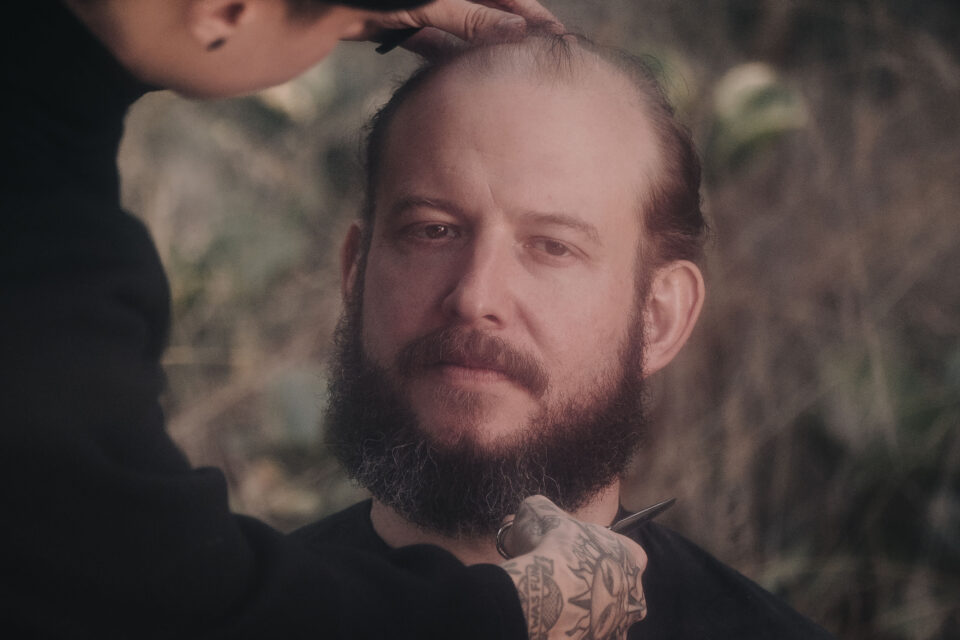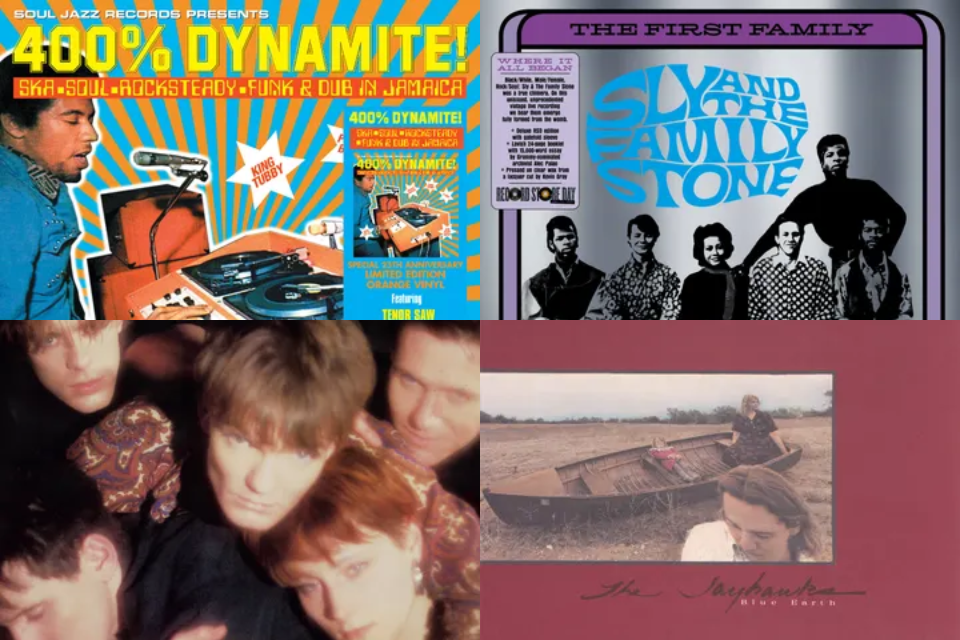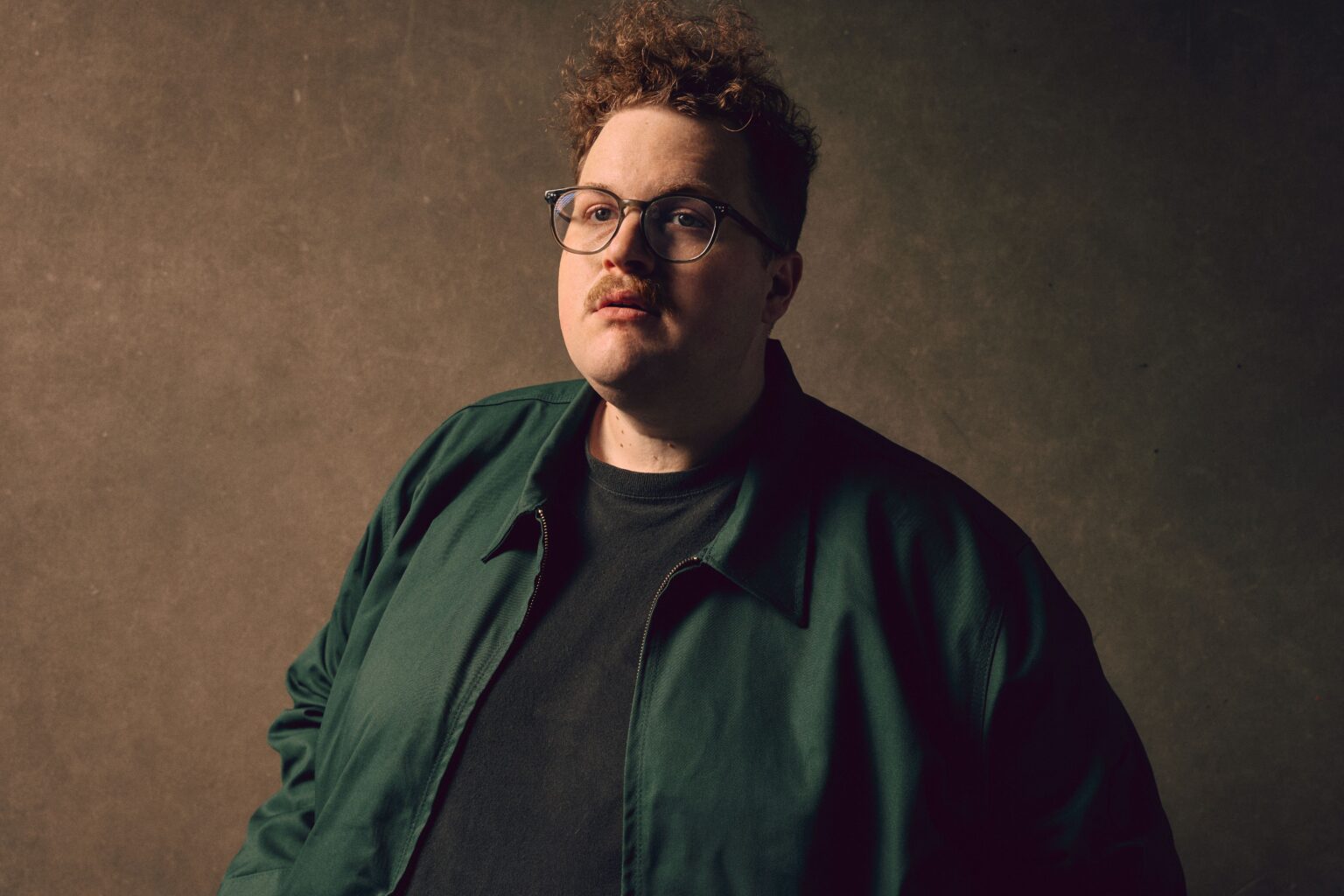WNXP’s Record of the Week is The Academy by Lutalo. The Vermont-based songwriter who has ties to Big Thief was initially cast as an indie folk artist but Lutalo says this album was meant to shrug off those limitations. Playing every instrument, they show off a masterful command of multiple styles and genres to tell crucial, and often heartbreaking, stories of their first quarter of life while also making commentary on consumerism and politics in a way that never feels preachy. The week before the release, Lutalo joined us to share some reflections on the album and insight into how a particular Nashville-based artist gave them a peek into what was possible as an artist of color in the overwhelmingly white world of indie music. (You can listen to the entire conversation with music above or in our podcast feed.)
Jason Moon Wilkins: I wanted to start with the song that we have been playing the most, “Ocean Swallows Him Whole.” In the release about it you say it’s somewhat about careerism and specifically about interacting with a person or place or environment with the attitude of “What do I get out of this?” I wonder if that’s something even within music you’ve seen and maybe even amplified by this Instagram culture?
Lutalo: For sure, I think it’s almost unavoidable to witness nowadays because it’s such a base mode of operation for just, like, building up anything. Any projects or any company or whatever. I guess that would stem back down to a capitalist mentality or figuring out how to capitalize off of the relationships of people around you or things around you. The question is always how do you choose to operate around those type of interactions? And often for me, I’ve just moved to finding the people that I really love and connect with deeply on an emotional level and then kind of just keep my peace with the people or things that I don’t think are operating with the truest intentions. It was just something that I witnessed, whether it was dating or music or industry folks or whatever.
JMW: Well, I don’t know about you, but I find it difficult to rectify my revulsion about social media and the way that I felt it was changing my behavior. Thinking about things in a different way as opposed to just experiencing life. The reality, though, is that is where all of eyeballs and ears are if you want to be able to communicate what you’re talking about. It’s a difficult balancing act at times.
Lutalo: Absolutely. I mean, I struggle with it every single day. Because, at a certain point, I feel like I’m working for these social media companies when I never wanted that relationship in the first place. That makes me an employee of Instagram and Twitter, X or whatever. I don’t tend to engage with it very often, and it punishes you if you don’t engage with it often. It also makes you realize that these are the gatekeepers to your audience, which feels absurd to me. But it is just how it is right now. So, I don’t know. Got to find other outlets. I’m currently finding solutions myself right now to not be as dependent on these companies, basically.
JMW: You named this record The Academy. And you’ve talked about this elite private school where you got a scholarship where you were surrounded by children of privilege. And there’s the unpacking of that experience you hear lyrically on this record. And I wonder for you, if, what happens to a lot of us who go through various different school systems is that a lot of your time after that is spent unlearning, and unpacking what you went through?
Lutalo: Without a doubt. Yeah, I think it was pretty quick after I graduated from that school that I started to reflect quickly and be like, “Wait a minute, why was I there? And what am I going to take away from it?” And what was just standardized teachings and what were things that had been passed on for years that I realized that weren’t serving me or serving my life specifically? Because that was the other part, I was looking through a lens of what everybody else was doing, but I was in a very different situation than everybody else. So that was a hard, hard reality to continue to come to terms with, honestly.
JMW: There’s a song I wanted to ask you about, “Caster,” where you have these different elements, loops, record scratching, acoustic guitar, live instruments. And I wonder in that specific song if those production and instrumental choices were made to match the song’s meaning?
Lutalo: 100%. Yeah, that song to me was about the struggle of Black folks and all of those sonic textures were like a history of a part of our culture. Whether it was hip-hop, whether it’s folk music, whether it was rock music, all of it. I had some shakers and such that felt very African and like West African drumming and stuff, too. So, I just felt like that was what I was trying to picture and create was this vivid imagery of all of that, basically.
JMW: I’m a big shoegaze person and I hear that influence in the song “Oh Well.” There is this idea you sometimes see where people refer to shoegaze as purely escapism. But I push back a little bit on that. It can also be an expression of emotional overwhelm and sometimes burying things or, loudly expressing them to let that out or to deal with it sonically. Is that something that rings true to you at all about your approach on that particular song?
Lutalo: Without a doubt. I mean, my biggest thing was that I realized that I really struggled to sing out loud because I’m not much of a yeller. I’m not much of a loud talker. Through my music, I might have a lot of rage, but I’ll still present it in a very kind of gentle or almost just exhausted tone. And that’s kind of where I was coming from, just dissociative and kind of detached. Which is something that I’ve struggled with in the past just as a survival mechanism. But, you know, it is what it is.
JMW: The song “The Bed” has been described as an anti-war song, but it’s not as lyrically straightforward as something like “War, what is it good for?” Can you tell a little bit of the story of that song and how for you it has evolved into a song that is anti-war?
Lutalo: Yeah. I mean, really, what it more so is about is just the kind of fact that we all are involved in these wars whether we want to or not. You get in the bed with these movements, whether you choose to. You’re born in it and born into it. And you might not be with it, but it’s something that your life is centered around. Another thing is just about how our existence in the United States is so dependent on exploitation or warmongering. And that is something that I just want to be able to reflect on and for other people to really reflect on as we try to, like, really look for better options in our own future. It was something that my father often spoke to me about and educated me about and just made me understand what it means to exist in this place, really.
JMW: There are so many parts to your story. One of those pieces is that you’re an artist of color in an indie music world that has been, and remains, white-dominated from a representation standpoint. Were there artists that you heard or you saw growing up who made you think, this is somewhere where I could be musically?
Lutalo: Yeah, totally. I mean, as a kid it was mostly white rock bands that I was watching and looking up to. And it was really hard for me to even picture myself in anything but a white band because that was all that I had seen. I think Brittany Howard was the really great breakthrough moment for me where I was like, okay, alternative kind of rock stuff that is led by this Black woman with just so much power that it just cuts through.
I think I have, and I still continue to have, to grasp with the reality that a lot of indie rock music is very much aesthetic-based and truly mostly centered around a white youth culture aesthetic. And sometimes I feel like it’s hard because that audience can’t physically relate to or even just like societally relate to everything that I’m saying or the way that I present myself. But I think at this point, I just go with what is most true to what is me. And I trust that the people that are interested are hopefully not from a tokenism kind of approach. Because that was something that I was concerned about as well, doing folk music. I didn’t really want it to be this, like, Black representative of folk music because that would pigeonhole me to that. So, I just really stood true, was like, I’m going to create the music that I want to hear and play and people are going to have to deal with that or just be excited about growing with me and seeing where this leads rather than being a specific genre placement of a Black artist in that in that respective area.




